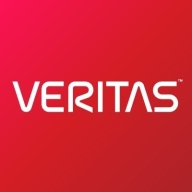

Nasuni and Veritas CloudPoint compete in the cloud storage management space. Data indicates that Nasuni has an edge in ease of management and cost predictability, while Veritas CloudPoint has superior advanced data protection features.
Features: Nasuni provides strong file sharing and collaboration capabilities, unified storage options, and high scalability. Veritas CloudPoint offers robust backup and recovery, advanced data protection, and excellent workload coverage.
Ease of Deployment and Customer Service: Nasuni is known for a straightforward deployment process with effective customer support for seamless integration. Veritas CloudPoint's deployment may require more effort due to feature complexity, although its responsive support aids in rapid issue resolution.
Pricing and ROI: Nasuni features a predictable pricing model with notable ROI through reduced infrastructure costs. Veritas CloudPoint, despite higher initial setup costs, provides significant ROI with feature-rich offerings, ideal for businesses requiring intensive data protection.


Nasuni is a file data services enterprise focused on assisting firms with their digital transformation, global expansion, and information awareness. The Nasuni File Data Platform is a suite of cloud-based services designed to enhance user productivity, ensure business continuity, provide data intelligence, offer cloud options, and simplify global infrastructure. This platform and its auxiliary services are projected to replace conventional file infrastructure such as network attached storage (NAS), backup, and Disaster Recovery (DR), with an expandable cloud-scale solution. By storing file data in scalable cloud object storage from multiple providers, Nasuni positions itself as a cloud-native alternative for traditional NAS and file server infrastructure. Based in Boston, Massachusetts, USA, Nasuni serves sectors like manufacturing, construction, technology, oil and gas, financial services, and public sector worldwide, offering its services in more than 70 countries.
James J., IT Manager at a marketing services firm, says Nasuni’s management dashboard is helpful because he's able to view all of the different filers at once rather than check each one of them individually. He values the software’s security, reliability, good performance, helpful alerting, and responsive support.
According to a Server Engineering Services Lead at a mining and metals company, Nasuni offers good OR and DR capabilities, performs well, offers data security, and continuous file versioning helps recover from hardware failures.
The Managing Director of IT at a construction company appreciates Nasuni because it eliminates a lot of work that was previously done when managing backing up and restoring data files.
With Veritas CloudPoint, you get the visibility and control from one intuitive central dashboard to confidently manage and easily orchestrate enterprise data protection for your business data consistently across the broadest range of applications and workloads, in both private and public clouds, helping you to transform your organization into a confident multi-cloud digital enterprise.
We monitor all Cloud Backup reviews to prevent fraudulent reviews and keep review quality high. We do not post reviews by company employees or direct competitors. We validate each review for authenticity via cross-reference with LinkedIn, and personal follow-up with the reviewer when necessary.